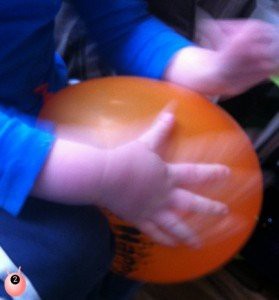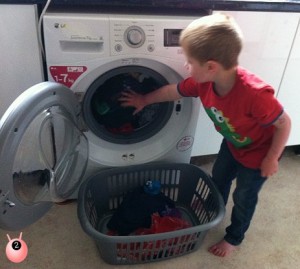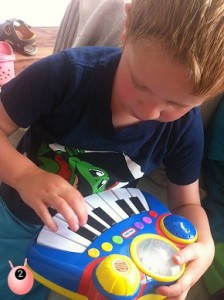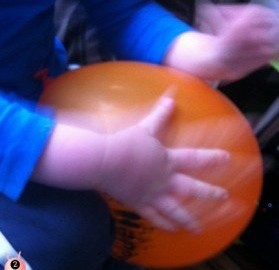Sensory Processing – The Auditory Sense (Hearing)
 We receive lots of information through all of the seven senses. They tell us what we can hear, feel, see, smell, taste, which way up we are and movement. We then filter out which bits of information we need to make sense of things, and to tell us how to behave. Sometimes we all can struggle with which of the senses to filter out. This post looks at the auditory sense (hearing). Think of it like when there is the noise of a tapping pen, or water dripping, and we are trying to concentrate on something/someone. We may even have to do something about it to make it stop. We may even get annoyed and SHOUT.
We receive lots of information through all of the seven senses. They tell us what we can hear, feel, see, smell, taste, which way up we are and movement. We then filter out which bits of information we need to make sense of things, and to tell us how to behave. Sometimes we all can struggle with which of the senses to filter out. This post looks at the auditory sense (hearing). Think of it like when there is the noise of a tapping pen, or water dripping, and we are trying to concentrate on something/someone. We may even have to do something about it to make it stop. We may even get annoyed and SHOUT.
People with sensory integration disorder (or sensory processing disorder) have trouble registering and organising the information, making it difficult for them to learn and function in the World. For them it may not just be the noise of the pen or water but all the sounds in their immediate environment – no matter how loud or quiet. There are times when the child is over aroused and needs calming down, or maybe the child is too calm and needs arousing, and it is also normal to switch between the two.
The Sensory Seeker and The Auditory Sense
I do think that when The Sensory Seeker is upset, or I am thinking about his Sensory Diet, the auditory sense is the hardest one (for me) to remember. We first noticed that he did not like hand dryers, fireworks, motorbikes, the vacuum cleaner, or even his brother talking could really irritate him. He would cover his ears in real pain and sometimes cry out too. Other times he really likes a lot of noise, and will make up little sounds to calm himself, or be very loud.
Auditory Hypersensitivity – TOO MUCH

• Distressed by sudden or loud noises
• Distressed by sounds that don’t bother others (e.g. phone ringing)
• Cannot focus/ complete a task when there is background sound
• Scared of appliances like lawn-mower outside, blender
• Seek out quiet areas
• Hear sirens, aeroplanes, cars driving past before anyone else
• Vocalise loud/ constant noises (to block out other noises or sounds)
• Might be scared of, or avoid hand-dryers or toilets
What we can do to help
• Warn them when possible if there is going to be a loud noise.
• LABEL the source of the sound e.g. “Johnny does that sound feel loud to your ears? It is the lawn-mower.”
• Give the option of a ‘time out/ quiet corner’ if there is going to be e.g. loud music. My son likes the book corner.
• Give them somewhere quiet to eat their lunch.
• Seat the child away from the door.
• Use fan or background noise to muffle loud/ unexpected sounds.
• Teach the child to hum to block out noise.
• Provide personal ear phones where possible.

• Give them control – like using the vaccuum cleaner.
• Start slowly -Let them help with noisy appliances whilst they are not noisy (like unloading the washing machine), then put the machine on whilst you are with them and warn them about the sounds – maybe start with ear defenders/covering their ears, and slowly build up to them being in front of the machine on their own.
• If they have made an association that something makes a loud sound they don’t like – such as a balloon bursting – then try to get them to play with them, and show them that no harm will come to them.
Auditory Hypo-sensitivity – NOT ENOUGH

• Seek out all the toys on the mat that make the most noise.
• Constantly vocalising loudly
• Talk louder than other people
• Like to make a lot of noise (e.g. banging on the table)
• Crave/ respond positively during or after loud music
• Enjoy strange or certain sounds
• Might float aimlessly & not follow your verbal instructions
• Not respond when you verbally tell them instructions
• Appear to ignore others voices
What we can do to help
• Use hand gestures to help get your message across
• Touch them firmly to get their attention before speaking/ giving instructions
• Allow time for noisy play (we have a noisy toy box)
• Where possible- use learning through sound/ music
• Provide lively music in the background during e.g. bathing, getting dressed etc.
• Use extra visual supports- e.g. visual schedule, social story, stand in one place when giving instructions
 Calming
Calming
- Consistency in noise levels
- Quiet calm and well paced voices
- Consistent rhythms
Arousing
- Variations in noise levels
- Erratic, loud or screaming voices
- Variations in rhythms eg. fast and slow music combined
- Sudden unexpected noises
 We receive lots of information through all of the seven senses. They tell us what we can hear, feel, see, smell, taste, which way up we are and movement. We then filter out which bits of information we need to make sense of things, and to tell us how to behave. Sometimes we all can struggle with which of the senses to filter out. This post looks at the auditory sense (hearing). Think of it like when there is the noise of a tapping pen, or water dripping, and we are trying to concentrate on something/someone. We may even have to do something about it to make it stop. We may even get annoyed and SHOUT.
We receive lots of information through all of the seven senses. They tell us what we can hear, feel, see, smell, taste, which way up we are and movement. We then filter out which bits of information we need to make sense of things, and to tell us how to behave. Sometimes we all can struggle with which of the senses to filter out. This post looks at the auditory sense (hearing). Think of it like when there is the noise of a tapping pen, or water dripping, and we are trying to concentrate on something/someone. We may even have to do something about it to make it stop. We may even get annoyed and SHOUT. • Distressed by sudden or loud noises
• Distressed by sudden or loud noises • Give them control – like using the vaccuum cleaner.
• Give them control – like using the vaccuum cleaner. • Seek out all the toys on the mat that make the most noise.
• Seek out all the toys on the mat that make the most noise. Calming
Calming